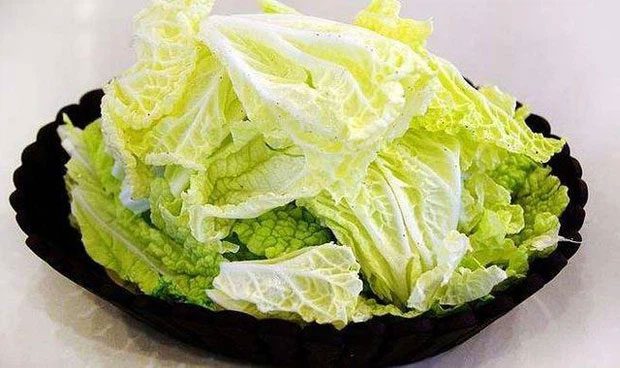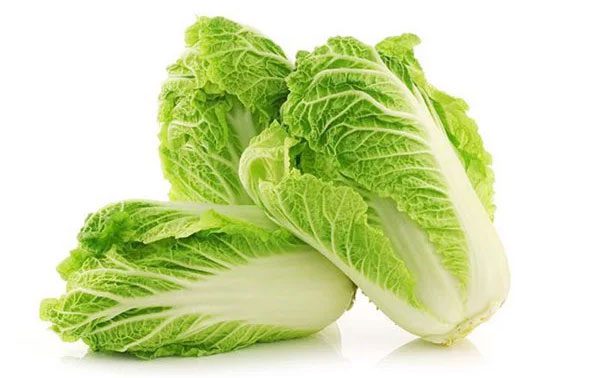Chinese cabbage is a common vegetable in many households. It is not only delicious and versatile in cooking but also rich in nutrients and beneficial for health. However, it is important to consume Chinese cabbage correctly to avoid potential health risks.
When it comes to Chinese cabbage, most people are already familiar with it. With various cooking methods such as boiling, stewing, stir-frying, and wrapping with meat, Chinese cabbage has become a staple in daily life.
This “national vegetable” is also very rich in nutrients and good for health. Chinese cabbage is high in dietary fiber, which not only moistens the intestines and promotes detoxification but also stimulates bowel movements, aids in stool elimination, and supports digestion, making it effective in preventing colorectal cancer.

Chinese cabbage is rich in vitamin C and vitamin E.
It also contains many vitamins, making it particularly suitable for winter. The dry and cold air during autumn and winter can cause significant damage to human skin. Chinese cabbage, being rich in vitamin C and vitamin E, is excellent for skin care and beauty.
Moreover, Chinese cabbage contains trace elements. Scientists at the Endocrinology Institute in New York (USA) have discovered that the incidence of breast cancer among women in China and Japan is much lower than that of Western women due to their regular consumption of Chinese cabbage. Some trace elements in Chinese cabbage may help break down estrogen associated with breast cancer. Women consuming 450g of Chinese cabbage daily can absorb 500mg of this compound.
Additionally, it is rich in copper—an essential trace nutrient for human health, which plays a crucial role in the development and functioning of blood, the central nervous system, the immune system, hair, skin, bone tissue, brain, liver, heart, and other internal organs.
Despite its health benefits, it is important to note that not everyone should consume Chinese cabbage, as improper consumption can lead to health issues.
People Who Should Avoid Eating Chinese Cabbage
1. Individuals with Digestive Disorders
Chinese cabbage contains a large amount of coarse fiber, which is hard to digest. Therefore, individuals with weak digestive systems, diarrhea, or children with poor digestion should not consume it in large quantities.

People with poor digestion should avoid Chinese cabbage.
Additionally, patients recovering from abdominal or thoracic surgery, especially those with stomach ulcers or bleeding, diarrhea, and liver diseases should avoid eating Chinese cabbage.
2. Individuals with Cold Constitution and Poor Digestive Health
Chinese cabbage has a cooling nature; thus, those with a cold constitution may experience stomach discomfort and diarrhea if they consume it in large amounts. Furthermore, individuals with weak digestive systems may struggle to digest the large quantity of coarse fiber found in Chinese cabbage. Therefore, these two groups should limit their intake.
3. Pregnant Women
Pregnant women often experience acid reflux, indigestion, and allergies, so they should avoid eating Chinese cabbage. Overconsumption can lead to indigestion, allergies, and exacerbated acid reflux, harming both mother and baby.
It is best for pregnant women to consume a moderate amount of well-cooked Chinese cabbage and limit pickled varieties due to their high salt content, which is not good for health.
If consuming Chinese cabbage leads to symptoms of indigestion, allergies, or acid reflux, they should stop eating it immediately and consult a doctor if the condition worsens.
4. Individuals with Kidney-Related Conditions
Chinese cabbage is not an ideal vegetable for those undergoing dialysis or suffering from severe kidney disease. Consuming it may worsen the condition and complicate the illness.
Those with a cold constitution should also be cautious when consuming Chinese cabbage. Its cooling properties can lead to stomach discomfort and diarrhea in these individuals.
5. Individuals with Constipation
If you are experiencing constipation or infrequent urination, it is advisable to avoid raw Chinese cabbage to prevent worsening the condition. You should also steer clear of pickled Chinese cabbage and kimchi. If you want to enjoy it, consider cooking it in soups or stir-fries.
6. Avoid Combining Chinese Cabbage with Certain Foods
When eating Chinese cabbage, it is best not to combine it with rabbit meat, mangosteen, or cucumbers to avoid discomfort. You should wait at least two hours before consuming these foods.


















































